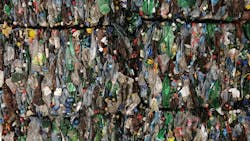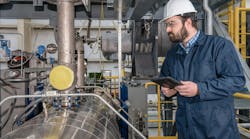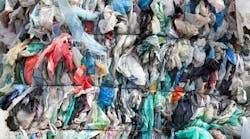Expanding plastics recycling could support thousands of jobs, $50 billion in economic output: ACC study
The American Chemistry Council (ACC) has released an analysis detailing the potential economic impact of increased plastics recycling.
The study claims that if 50 percent of plastics in the municipal solid waste stream were redirected from landfills to recycling facilities, the U.S. could add an estimated 173,200 jobs, $12.8 billion in annual payroll and $48.7 billion in annual economic output.
It included the potential of both mechanical and advanced (heat and/or chemical) recycling technologies to process a broad range of used plastics.
“Strengthening our recycling infrastructure is a win for U.S. manufacturing and helps keep more used plastics out of landfills and in the economy,” said Ross Eisenberg, president of America’s Plastic Makers, in a press release. “This report shows that modernizing and expanding plastics recycling can strengthen domestic supply chains, create thousands of skilled jobs, and provide the high-quality recycled materials that brands and manufacturers want to add to their products.”
America’s Plastic Makers represents the American Chemistry Council’s Plastics Division and its member companies.
The study said of the 173,200 total jobs that could be supported nationwide by expanding recycling, 43,300 would be direct positions operating recycling facilities. Of the $48.7 billion in annual economic output, $16.4 billion would be generated directly by recycling facilities.
The ACC noted that while mechanical recycling has been the primary method for decades, its limitations mean that advanced recycling technologies, which turn more difficult-to-recycle plastics back into monomers for reuse, must be expanded.
Plastics Machinery & Manufacturing (PMM) recently reported on the difficulties so far in scaling up advanced recycling, including funding uncertainties, the low cost of virgin materials and the failure to centralize recycling policies.
Advanced recycling “can handle mixed or difficult-to-recycle materials — streams that historically posed challenges for mechanical recyclers. By working in tandem, these processes can maximize recovery, reduce landfill volumes and address gaps in today’s recycling infrastructure,” Andy Brewer, director of recycling and sustainability for the Plastics Industry Association (PLASTICS), told PMM.
“Many manufacturers are already taking advantage of advanced recycling technologies and recycled plastic materials, and several global brands have incorporated recycled plastic into their products,” the study said. “Over the past decade, billions of dollars have been committed to building new recycling infrastructure across the U.S. The growth potential for the recycling industry — and the subsequent diversion of used plastics from landfills — is substantial.
The full analysis is available on the America’s Plastic Makers website.


